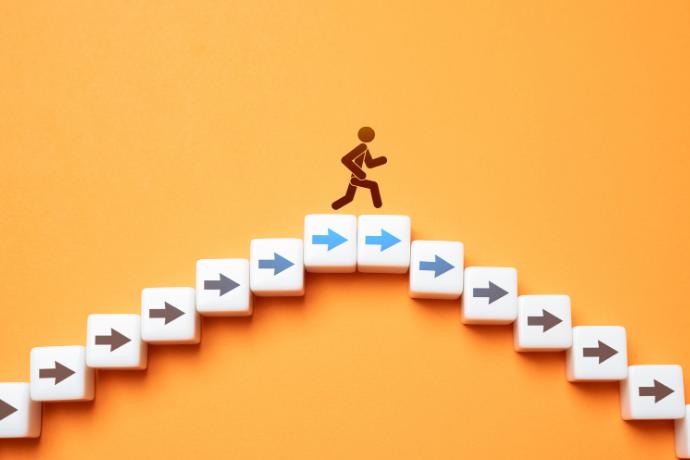 SPEAKERS
SPEAKERS
 TOPICS
TOPICS
In our journey to success, we often face the choice between discipline and motivation. Both are essential, but understanding their roles helps us leverage them effectively to achieve our goals.

In our journey towards success, we often find ourselves at a crossroads between relying on discipline vs motivation. Both are powerful forces that can drive us forward, but understanding their distinct roles and impacts can be the key to achieving our goals.
When pursuing our dreams and ambitions, we frequently question which inner force will serve us better. Is it the fiery enthusiasm of motivation that makes us feel invincible, or the steady, unwavering power of discipline that keeps us moving forward?
The difference between motivation and discipline lies in their fundamental nature. Motivation is like a spark - it ignites our desires and dreams. Discipline, however, is the steady flame that keeps burning even when motivation fades away.
Resilience speakers often emphasize that motivation is an emotional state that fluctuates based on various factors. It's the excitement you feel when starting a new project or the surge of energy after watching an inspiring video.
When we delve deeper into these contrasting forces, we discover that motivation often stems from external sources. It could be an inspiring speech, a successful colleague's story, or a powerful book that temporarily fuels our ambitions.
Discipline, by contrast, emerges from within. It's the internal compass that guides our actions regardless of external circumstances. Think of it as the quiet force that gets you up early every morning, regardless of whether you feel like it or not.
Understanding this core difference helps us recognize why some people consistently achieve their goals while others struggle. Motivation might get you started on a Monday morning, but discipline ensures you're still going strong by Friday afternoon.
Consider how these elements manifest in daily life: motivation makes you buy a gym membership in January, but discipline ensures you're still working out in December. This fundamental distinction shapes not just our actions, but our entire approach to goal achievement.
Looking at a typical discipline vs motivation graph, we can observe that while motivation shows high peaks, it also exhibits deep valleys. Discipline, on the other hand, maintains a more consistent level of performance over time.
Scientific research reveals that motivation operates through the brain's reward system, specifically the dopamine pathways. This neurotransmitter creates feelings of pleasure and anticipation, but its effects are inherently temporary and subject to external circumstances.
In contrast, discipline works by strengthening the prefrontal cortex, the area responsible for decision-making and impulse control. Through repeated actions, we create stronger neural connections that make disciplined behavior more natural and automatic.
The brain's plasticity allows us to strengthen these pathways through consistent practice. Each time we choose discipline over immediate gratification, we reinforce these neural connections, making future disciplined choices easier and more natural.

Why discipline is more important than motivation becomes evident when we examine long-term success stories. Motivational speakers consistently highlight that successful individuals rely more on their disciplined routines than momentary bursts of inspiration.
When we look at high achievers across different fields, we notice a common thread: their unwavering commitment to disciplined practices. They show up every day, regardless of how they feel, and this consistency becomes their superpower in achieving extraordinary results.
The power of discipline lies in its ability to transform challenging tasks into automatic behaviors. Unlike motivation, which can be affected by external factors, discipline creates a shield against distractions and emotional fluctuations, ensuring steady progress toward our goals.
Think of discipline as the invisible force that pushes you forward when motivation takes a backseat. It's the quiet determination that keeps you working on your projects, maintaining your exercise routine, or pursuing your dreams, even when the initial excitement has long faded.

While we've established that is discipline more important than motivation, we shouldn't completely dismiss the value of motivation. It serves as an excellent starting point and can provide the initial push needed to establish disciplined habits.
Motivation acts as a powerful catalyst for change and innovation in our lives. When we feel motivated, our brain releases dopamine and other feel-good chemicals that enhance our focus and drive. This natural response can be particularly valuable when facing new challenges or stepping out of our comfort zone.
Motivation is the wind in your sails - while it may not always blow steadily, it can help you navigate through rough waters. It's especially crucial during those moments when you need to overcome inertia or break through plateaus in your journey.
Motivation also plays a vital role in team dynamics and leadership. When shared among group members, it can create a positive atmosphere that elevates everyone's performance. This collective energy often leads to breakthrough moments and innovative solutions that might not emerge through discipline alone.
The most effective approach strategically combines both elements. Use motivation as your initial catalyst, but build disciplined systems to maintain progress. This hybrid approach ensures sustainable success in both personal and professional endeavors.
Success frameworks thrive on structured approaches that blend both motivation and discipline. By implementing systematic routines, you create a reliable foundation that withstands the test of time and challenges. These frameworks serve as your roadmap to consistent achievement.
Start by breaking down your larger objectives into smaller, manageable tasks. This approach makes your goals less overwhelming and more attainable. Regular monitoring and adjustment of your systems ensure they remain effective and aligned with your evolving aspirations.
Incorporate accountability measures into your framework. Whether through mentorship programs, progress-tracking apps, or regular check-ins with peers, these systems help maintain your commitment to your goals. They provide external structure when internal motivation might waver.
While motivation provides the spark that ignites our ambitions, discipline is the steady force that turns dreams into reality. The most successful individuals understand that relying solely on motivation is unsustainable—it fluctuates, while discipline ensures consistent progress. By integrating both, we can create a powerful framework for long-term success.
Use motivation as a catalyst to start, but build disciplined habits to sustain momentum. In the end, true achievement comes from showing up every day, regardless of how you feel, and trusting that disciplined effort will lead to extraordinary results. Success isn’t about waiting for inspiration; it’s about creating habits that make progress inevitable.